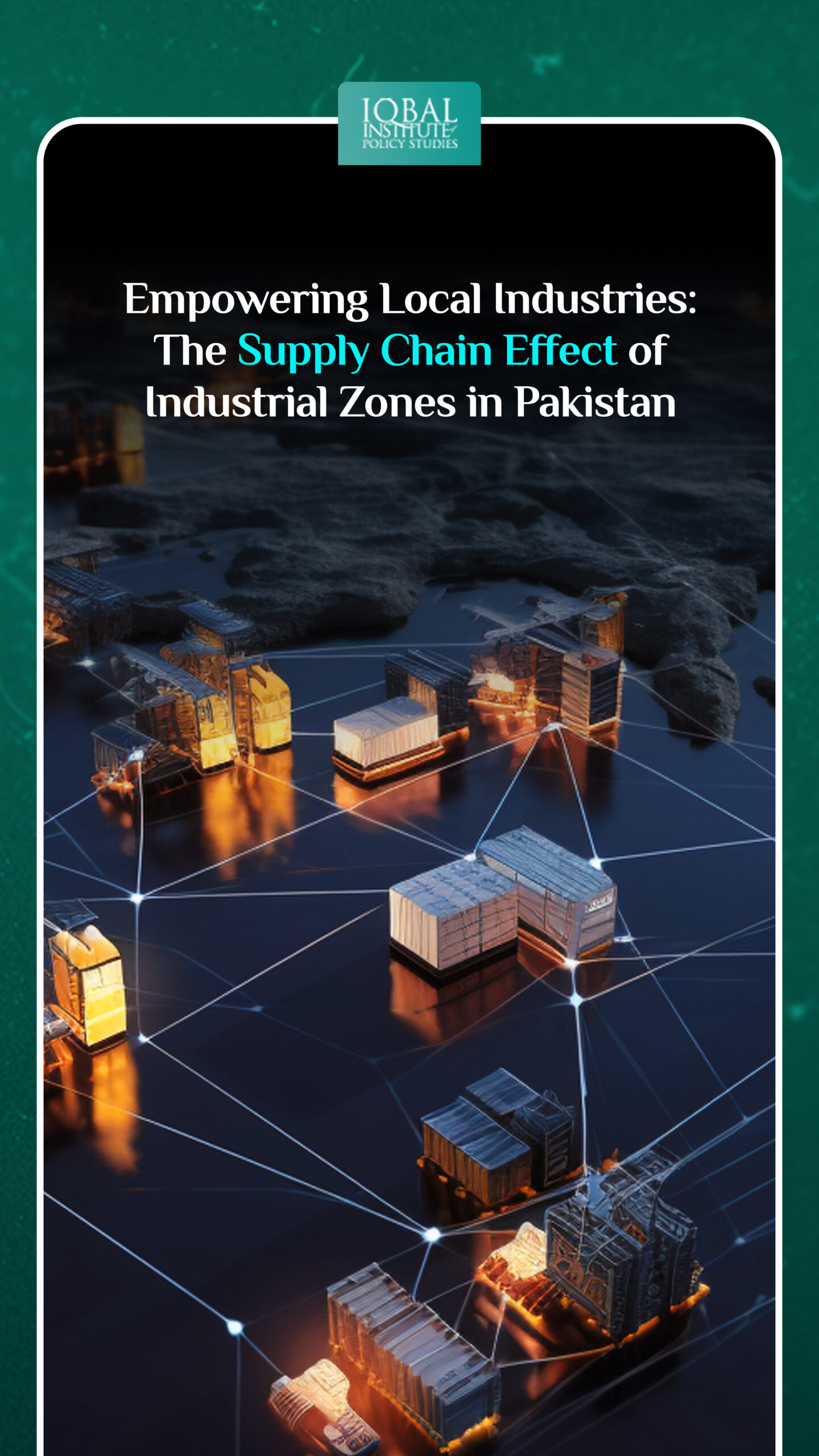Pakistan’s industrial zones have played a pivotal role in shaping the country’s economic landscape, providing a platform for local industries to thrive and grow. These designated areas, known as Special Economic Zones (SEZs) or Industrial Zones, are strategically designed to attract domestic and foreign investments, foster job creation, and promote technological advancements. Among the various advantages, one key aspect that has garnered significant attention is the supply chain effect. This blog will explore how industrial zones empower local industries through the supply chain effect, amplifying their growth and contributing to Pakistan’s economic development.
Understanding Industrial Zones and Their Significance
Industrial zones, also known as Special Economic Zones (SEZs) or Industrial Estates, are designated areas within a country to encourage industrial development and attract investments. These zones are strategically planned and equipped with various incentives, infrastructure facilities, and policy frameworks to facilitate business operations and promote economic growth. In Pakistan, the concept of industrial zones gained momentum as part of the government’s efforts to boost industrialization and achieve sustained economic development.
The significance of industrial zones in Pakistan lies in their ability to concentrate industries in one location, creating a cluster effect that fosters collaboration and synergy. Industrial zones facilitate efficient supply chains, knowledge sharing, and technology transfer by grouping similar or complementary sectors. This proximity also reduces transportation costs and time, making it more cost-effective for businesses to operate within the zone.
Additionally, industrial zones are critical in attracting domestic and foreign investments. The government provides various incentives and benefits to investors who operate within these zones. These incentives may include tax breaks, duty exemptions, streamlined regulatory processes, and access to specialized infrastructure. Such incentives encourage local entrepreneurs to expand their businesses and attract multinational corporations seeking a competitive manufacturing base in the region.
Furthermore, industrial zones help overcome infrastructural barriers that often hinder industrial growth in the country. These zones are developed with state-of-the-art infrastructure, such as well-planned road networks, reliable power supply, water resources, waste management systems, and access to ports or airports. This pre-established infrastructure reduces the cost and time required to set up industrial units, making it more convenient for businesses to establish and scale their operations.
Industrial zones also contribute significantly to job creation and skill development in Pakistan. Industries concentrating in these zones create a demand for skilled and unskilled labour, providing employment opportunities for the local workforce. The influx of industries also necessitates the development of a capable labour force, prompting the government and private sector to invest in vocational training and skill development programs to meet industry-specific requirements.
Regarding economic development, industrial zones act as engines of growth for the broader economy. They stimulate industrialization, enhance productivity, and contribute to increased GDP growth. Moreover, by promoting export-oriented industries, these zones help generate foreign exchange reserves, improve trade balance, and enhance the country’s overall economic stability.
Ways to empower local industries
Industrial zones empower local industries in various ways, providing them a platform to thrive and grow in a competitive global market. Industrial zones enable growth for local industries, fostering collaboration, strengthening supply chains, enhancing access to specialized resources, facilitating exports, and driving job creation. These zones are pivotal in empowering local businesses, contributing to the country’s economic development, and positioning it favourably in the global market.
Following are some significant ways industrial zones can empower local industries:
Fostering Collaboration and Networking
One of the most significant ways industrial zones empower local industries is by fostering collaboration and networking opportunities. When industries are located nearby, communication and coordination improve significantly. This proximity encourages exchanging ideas, knowledge, and expertise among businesses, leading to enhanced innovation and technology transfer. Local industries can benefit from sharing best practices, collaborating on research and development, and identifying potential synergies that may not be possible in isolated settings.
Strengthening the Local Supply Chain
Industrial zones act as catalysts in strengthening the local supply chain ecosystem. Suppliers and manufacturers within these zones can source raw materials and intermediate goods locally, reducing logistics costs and delivery times. This localized supply chain enhances cost-efficiency, promotes domestic production, and supports local businesses. Moreover, a robust local supply chain can shield industries from the volatility of global markets and reduce dependence on imports.
Access to Specialized Services and Infrastructure
Industrial zones often offer specialized services and infrastructure tailored to the needs of specific industries. These may include research and development centres, testing laboratories, training facilities, and access to skilled labour pools. Local enterprises can leverage these resources to improve product quality, refine production processes, and stay competitive in domestic and international markets.
Export and Trade Facilitation
Industrial zones play a crucial role in boosting Pakistan’s export potential. Businesses operating within these zones can expedite the export process with streamlined customs procedures and better connectivity to ports and airports. This increased efficiency leads to more significant export volumes and revenue generation for the country. Additionally, industrial zones often benefit from preferential trade agreements, further enhancing their export capabilities.
Job Creation and Skill Development
Empowering local industries through industrial zones goes hand in hand with job creation and skill development. As these zones attract investment and businesses, they create numerous employment opportunities for the local workforce. The influx of industries also encourages the development of a skilled labour force to meet the specific demands of various sectors. This, in turn, leads to improved socio-economic conditions and a higher standard of living for the surrounding communities.
Conclusion
Industrial zones in Pakistan have emerged as vital enablers for local industries, fostering collaboration, strengthening supply chains, and propelling economic growth. The supply chain effect of these zones is pivotal in empowering local businesses and creating a sustainable industrial ecosystem. As Pakistan continues to invest in developing industrial zones and support the growth of domestic industries, the country is poised to achieve remarkable progress and contribute significantly to the global economy. By leveraging the potential of industrial zones, Pakistan can unlock new opportunities and embrace a future of sustainable economic prosperity.



Leave a Reply